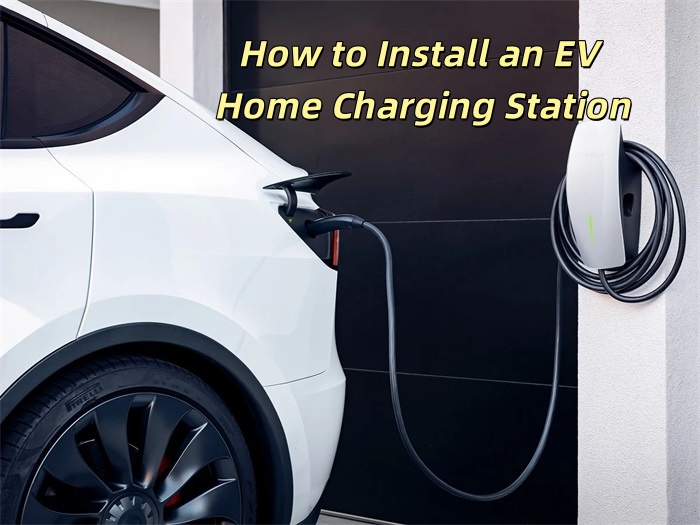As more drivers switch to EVs, the need for convenient and reliable charging stations has increased. Installing a home charging station gives EV owners a dependable solution to keep the battery full and bypass the challenges of public charging.

An electric vehicle charging station is a device that provides EVs with the right type and amount of power to keep their batteries charged. EV chargers are categorized into three groups called Levels 1, 2, and 3, depending on their size, output, and average charging speeds:
Level 1: A Level 1 charging system uses a 120V alternating current (AC), making it possible to charge using a standard home outlet. Charging speeds on a Level 1 port are the slowest, adding about 2 to 4 miles of range per hour.
● This level is usually the least expensive and requires minimal home modifications. New EVs often come with a basic Level 1 charger, which resembles a large mobile phone charger.
Level 2: The most common type of home EV charger, Level 2 units use 240V AC power, allowing for charging rates of 12 to 32 miles per hour.
● Since they require 240V power, homeowners need a compatible outlet and may need an upgraded electrical panel.
Level 3: Also called DC fast chargers, Level 3 units are typically found at commercial properties and public charging networks like Tesla Superchargers or Electrify America stations.
● These chargers use high voltage (400V or more) and convert AC to direct current (DC) for ultra-fast charging, providing 100 to 250 miles of range in under 45 minutes.
● Level 1 Charger: $300–$600 (usually included with the vehicle).
● Level 2 Charger: $500–$700 (excluding installation costs).
Additional expenses may include:
● Labor costs: Installation typically ranges from $200–$500, but permitting and inspections may add $500+ in some areas.
● Electrical upgrades: If your home lacks a 240V outlet or sufficient amperage, upgrading the breaker box and electrical panel can cost $850–$4,000.
Follow these steps for a smooth installation:
1. Assess Your Home’s Electrical System
Hire a licensed electrician to check your electrical panel, breaker box, and load capacity. They can determine if your home can support a Level 2 charger and install a 240V outlet if needed.
2. Research Local Regulations
Check state, county, or local laws regarding EV charger installation. Some areas require permits, especially for electrical or structural modifications.
3. Choose the Right Connector Type
Most U.S. EVs use J1772 or NACS (Tesla) connectors. Older models (like the first-gen Nissan Leaf) may require a CHAdeMO adapter.
4. Hire a Qualified Electrician
Select an electrician experienced in EV charger installations to ensure compliance with safety standards and local building codes.
We offer high-quality home charging stations and can help you find discounted installation options to reduce costs. When you're ready to purchase, let us know your EV’s brand and model for personalized recommendations.
Next:EVE Showcases Revolutionary Robotic Power Systems at World Robot Conference 2025
Previous:CORNEX Dual Honored with Prestigious Awards at Shanghai Energy Storage Exhibition
Contact Person: Miss. Kiki
| WhatsApp : | +8617763224709 |
|---|---|
| Skype : | +8617763224709 |
| WeChat : | +8617763224709 |
| Email : | kiki@lifepo4-battery.com |